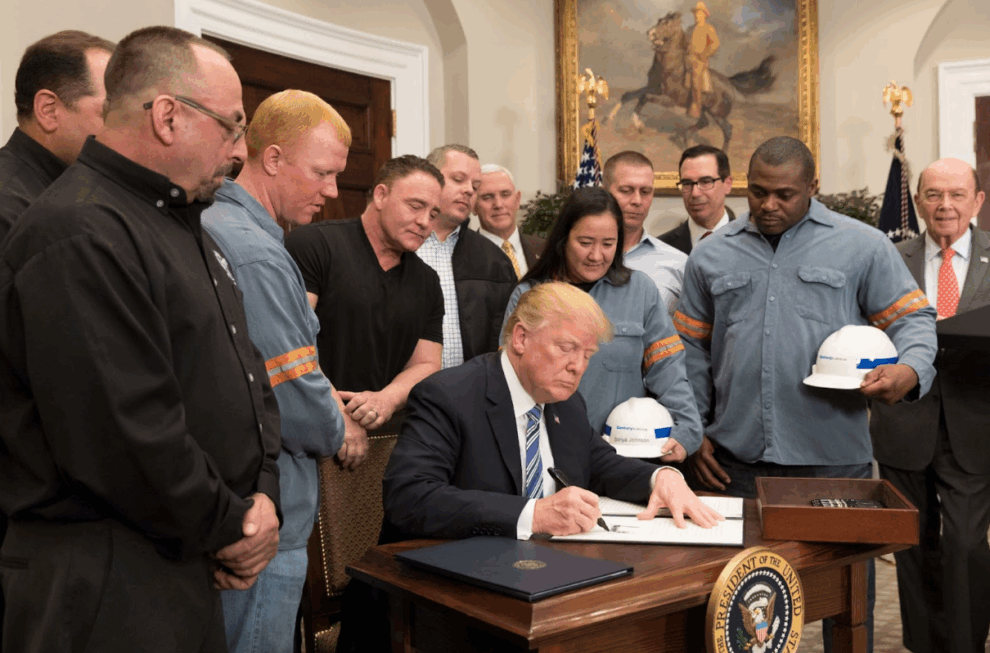The American government will get a “golden share” in the company, which gives veto power over a number of business decisions. The agreement is meant to prevent the company from moving or reducing investments.
After approving the sale of Pittsburgh-based U.S. Steel to Japanese company Nippon Steel, the Trump administration may have extraordinary power to ensure the deal benefits American national security and labor in the long term.
According to insiders with knowledge of the agreement struck between the United States and Japan, the administration will hold what is being termed a “golden share”, providing President Trump with significant powers on business matters as it pertains to national security.
Under the agreement, the Trump administration would have to approve any of the following changes: relocating the company from Pittsburgh, renaming the business, close factories, reincorporate in a foreign nation, or “transfer production or jobs outside” America.
U.S. Commerce Secretary Howard Lutnick said on X that the “Golden Share” will “directly benefit and protect America, Pennsylvania, the great steelworkers of U.S. Steel, and U.S. manufacturers.”
President Trump has secured a perpetual Golden Share as part of Nippon Steel’s acquisition of U.S. Steel. This partnership between the United States and Nippon Steel includes historic $14 billion investment in U.S. Steel by Nippon Steel that will revitalize this strategic and…
— Howard Lutnick (@howardlutnick) June 14, 2025
Part of the agreement also includes an investment by Nippon Steel of at least $14 billion, which can only be reduced with presidential approval.
The powers of the golden share go even further to ensure America benefits from the sale: President Trump would be able to appoint one of three independent directors on the company’s board of directors, with the power to veto picks of the other two independent directors.
In May, Pennsylvania Senator Dave McCormick told CNBC that the proposed agreement was a way for Nippon Steel to “get access to the U.S. market” while ensuring American workers and national security benefited from it.
While the White House is hailing the deal as a win for Pennsylvania steelworkers, United Steelworkers, the union that represents U.S. Steel employees raised questions over the structure of the deal and said it was “disappointed” Trump allowed the sale of the company to Nippon Steel after pledging during his candidacy to block the sale.
The White House, through a spokesperson, told the New York Times “Steel is the backbone of a modern economy and military. The Trump administration is committed to ensuring that foreign business decisions do not undermine our national and economic security.”
This is not the first time the United States government has taken ownership or decision-making authority in American businesses, though historically it is during times of economic distress. During the 2008 financial crisis, the federal government purchased a large share of General Motors partially in order to prevent the company’s collapse. The government sold its last shares of GM five years later.
Beyond questions from labor leaders, conservatives are questioning the move as well. National Review called the deal “U.S. Government Steel”, criticizing the agreement, saying that the American government will now be “a major shareholder” in the rival of steel companies they regulate, saying it is not fair for them.
To secure the deal, Nippon Steel agreed to the extraordinary power vested in the White House in the company’s charter documents, and even “downplayed management risk linked to the golden share” when the agreement was announced.
Shares of U.S. Steel, a publicly traded company, rose on news of the deal.











